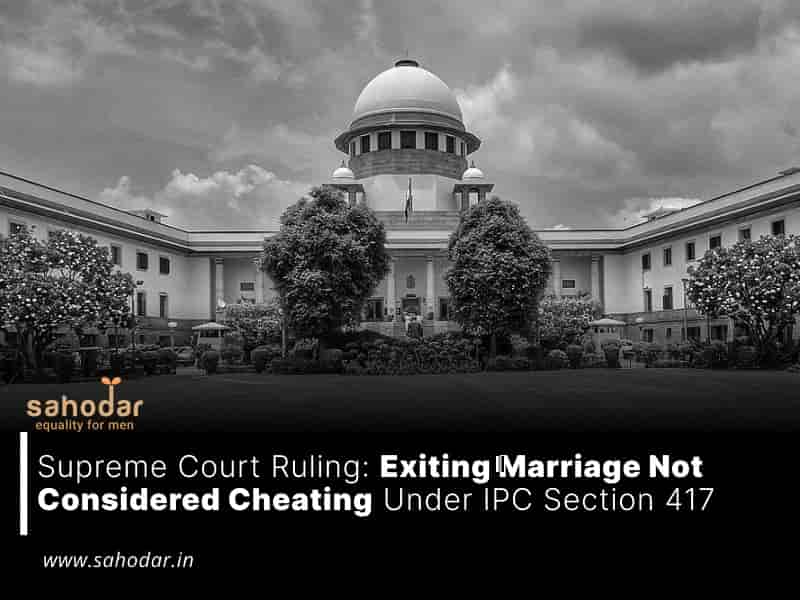The Supreme Court adjudicated that the failure of the accused to consummate the marriage within the reserved premises does not meet the criteria for constituting the offense of cheating, as stipulated under Section 417 of the Indian Penal Code.
“We do not see how an offence even under Section 417 of IPC is made out against the present appellant. There can be multiple reasons for initiating a marriage proposal and then the proposal not reaching the desired end. There is no such evidence before the prosecution and therefore no offence under Section 417 is also made out.”, the Supreme Court said.
In a judicial reversal of the High Court’s determination that declined the annulment of the accusation under Section 417 of the Indian Penal Code (IPC), the Bench comprising Justices Sudhanshu Dhulia and P.B. Varale stipulated that the requisite establishment of an offense of cheating under Section 417 IPC necessitates evidentiary substantiation by the prosecution indicating the accused’s premeditated intent to deceive from the outset.
“Time and again, this Court has reiterated that in order to make out an offence under cheating the intention to cheat or deceive should be right from the beginning. By no stretch of imagination, this is even reflected from the complaint made by the informant.”
The crux of the dispute pertained to the prospective marriage between the complainant and the accused, whereupon the complainant’s father advanced a sum of Rs. 75,000 as an initial payment for the wedding venue. However, the marriage failed to materialize when the complainant discovered through a newspaper publication that the accused had contracted marriage with another individual.
In response to the alleged misconduct of the accused, the complainant initiated legal action by lodging a First Information Report (FIR) against the accused and his family members under Sections 406, 420, and 417 of the Indian Penal Code (IPC), in conjunction with Section 34.
The accused filed an application under Section 482 of the Criminal Procedure Code (Cr.P.C.) seeking the dismissal of the ongoing criminal proceedings against him. While the High Court did quash the charges under Section 406 and 420 of the Indian Penal Code (IPC), it declined to do so for the charges under Section 417 IPC.
In response, the accused appealed the High Court’s decision to the Supreme Court.
After careful consideration, the Supreme Court determined that there was an absence of evidence substantiating the accused’s premeditated intent to defraud or deceive the complainant and her father from the inception of the matter.
“There can be multiple reasons for initiating a marriage proposal and then the proposal not reaching the desired end.”, the Court said.
“in order to prove an offence of cheating in such cases prosecution must have reliable and trustworthy evidence”, the Court added.
Upon determining that the prosecution failed to furnish evidence substantiating the alleged offense under Section 417, the court concluded that the elements necessary to establish an offense under this section were not satisfied.
As a result, the court has decided to annul the criminal proceedings under Section 417 IPC.

